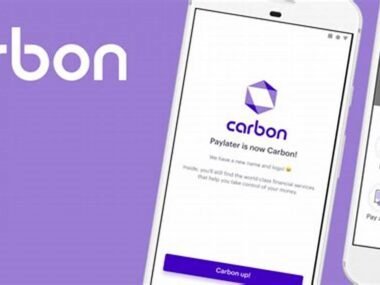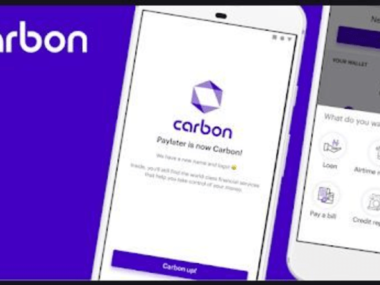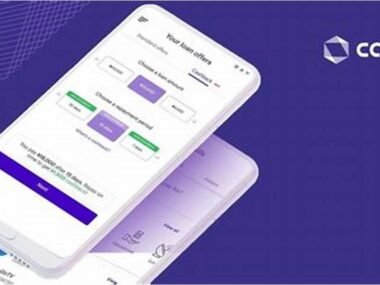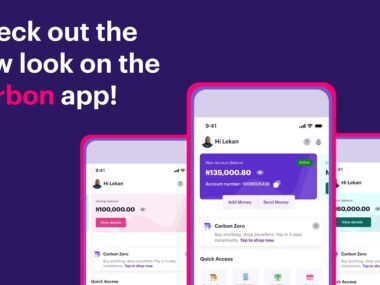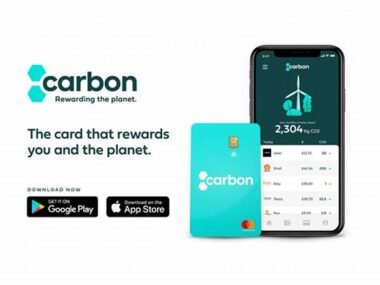Life is unpredictable, and we’ve all been there — facing unexpected expenses that seem impossible to handle. Whether it’s a medical emergency, an urgent family matter, or a business opportunity, sometimes you need money quickly, but your credit score is far from perfect. You might feel like you’re stuck, unable to access the funds you desperately need. But what if I told you there’s hope, even with a bad credit score?
Getting approved for a loan in Nigeria, even with a bad credit score, is not as impossible as it seems. It might require a little extra effort, a strategic approach, and the right knowledge. In this article, we’ll answer all the burning questions in your mind: How to get approved for a loan in Nigeria with a bad credit score? When should you apply? Who can help you access the money you need?
We’ll break down the steps, provide valuable tips, and guide you through the process so that you don’t feel overwhelmed. By the end, you’ll understand how to navigate the loan application process with confidence, even when your credit score is holding you back. Let’s dive in!
Understanding the Loan Landscape in Nigeria
Before we talk about how to get approved for a loan, it’s important to understand the loan landscape in Nigeria. Access to loans in Nigeria, especially for individuals with bad credit, can be a tricky road. But the good news is that several financial institutions and digital lending platforms are working hard to make loans more accessible to Nigerians, even those with poor credit histories.
Who Can Lend You Money with a Bad Credit Score?
When it comes to loan approval, it’s crucial to know where to turn for help. Traditional banks may not be your best option, but don’t worry — there are alternative lenders and financial platforms that can help you access funds, even with a less-than-perfect credit score.
Here are some of the key players you can turn to:
- Digital Lending Platforms: These platforms have revolutionized the way people access loans in Nigeria. Some digital lenders don’t rely heavily on your credit score. Instead, they use other factors such as your income, spending habits, and transaction history to assess your eligibility.
- Carbon Loan: One of the most popular digital lending platforms in Nigeria, Carbon offers quick and easy loans to individuals, even with a bad credit score. They provide both personal and business loans, with flexible repayment terms.
- Branch Loan: Another great option, Branch offers loans in minutes through their app. They also offer lower interest rates for first-time users, making it a great place to start.
- FairMoney: Known for fast loan approvals, FairMoney allows individuals with poor credit to access loans within minutes. Their platform is easy to use, and they provide transparent terms.
- Microfinance Banks: These institutions focus on offering small loans to people who may not qualify for loans from traditional banks. They are often more lenient with their credit requirements and can be an ideal option for those with bad credit scores.
- Peer-to-Peer Lending: This type of lending involves borrowing money from individuals or groups rather than financial institutions. These platforms, like Lendigo and SureRemit, allow you to access funds even if your credit score isn’t perfect. Lenders on these platforms may be more willing to overlook bad credit and consider your financial behavior and repayment capacity.
How to Get Approved for a Loan with Bad Credit in Nigeria?
Now that you know where to look for loans, let’s discuss how to actually get approved for one. Follow these steps to increase your chances of getting approved:
- Check Your Credit Report: Even if you have a bad credit score, it’s important to know exactly where you stand. Get a copy of your credit report from the Credit Bureau and carefully review it. This will help you understand what’s affecting your score and if there are any discrepancies that need fixing.
- Consider Your Loan Amount: When applying for a loan, think about how much you actually need. It’s always best to ask for a reasonable amount based on your repayment capacity. Avoid asking for too much money, as it could raise red flags and make lenders hesitant.
- Show Proof of Income: Lenders want to know that you have a reliable source of income to repay the loan. If you have a steady job, provide your salary slip or bank statements as proof. If you’re self-employed, show proof of your earnings, such as business receipts or tax returns.
- Apply for a Short-Term Loan: If you have bad credit, it’s easier to get approved for a small, short-term loan. These loans are generally less risky for lenders, making them more likely to approve your application.
- Use a Co-Signer: If you can’t qualify on your own, consider using a co-signer with a better credit score. A co-signer is someone who guarantees to repay the loan if you fail to do so. This increases your chances of getting approved, especially if the co-signer has a solid financial history.
- Build a Relationship with Your Lender: If you’ve previously borrowed money from a lender and repaid the loan on time, that can work in your favor. Building a relationship with lenders can improve your chances of loan approval in the future.
When Should You Apply for a Loan?
Timing is key when applying for a loan, especially if you have bad credit. Here are some tips on when to apply:
- When You Have a Steady Income: Lenders are more likely to approve your application when you have a consistent income stream. Make sure your financial situation is stable before applying.
- When You Need a Small Loan: If you only need a small amount of money, the chances of approval are higher, especially with bad credit.
- When You Have a Clear Plan for Repayment: Lenders want to know that you have a clear plan for how you’ll repay the loan. If you’re applying for a loan to cover an emergency expense, be sure to outline how you’ll repay it once the emergency is over.
How to Plan for Loan Repayment?
Repaying your loan on time is crucial for improving your credit score and maintaining a healthy financial profile. Here are some tips on how to plan your repayment effectively:
- Create a Budget: List all your monthly expenses, including your loan repayment, and ensure that you have enough to cover everything. Stick to your budget and avoid spending on non-essentials.
- Set Up Automatic Payments: Setting up automatic payments will help you avoid late fees and missed payments. It’s a great way to stay on top of your loan repayment.
- Consider Refinancing: If you’re struggling to make payments, look into refinancing options. Some lenders offer flexible repayment plans or the ability to extend the loan period to lower monthly payments.
Loan Comparison: Carbon Loan
| Loan Provider | Interest Rate | Eligibility | Repayment |
|---|---|---|---|
| Carbon Loan | 10% – 20% | Must be at least 18 years old, have a valid ID, and a steady income source | Flexible repayment terms up to 6 months |
Advice from Finance.Edujects:
“On no account should you take beyond what you can repay. This is an opportunity, but don’t overuse it. Don’t take more than your income capacity. Endeavor to use the money for its intended purpose. Learn from the business side of the Igbos — they would never borrow money for anything other than its specific purpose. An emergency requires emergency money, and it will come and go. Now that you have access to this opportunity, use it wisely.”
Getting approved for a loan in Nigeria with a bad credit score may seem like an uphill battle, but it is far from impossible. By knowing where to apply, following the right steps, and planning your repayment wisely, you can get the financial help you need without falling into a cycle of debt. Take the time to research and choose the right lender, and always make sure to borrow responsibly.

